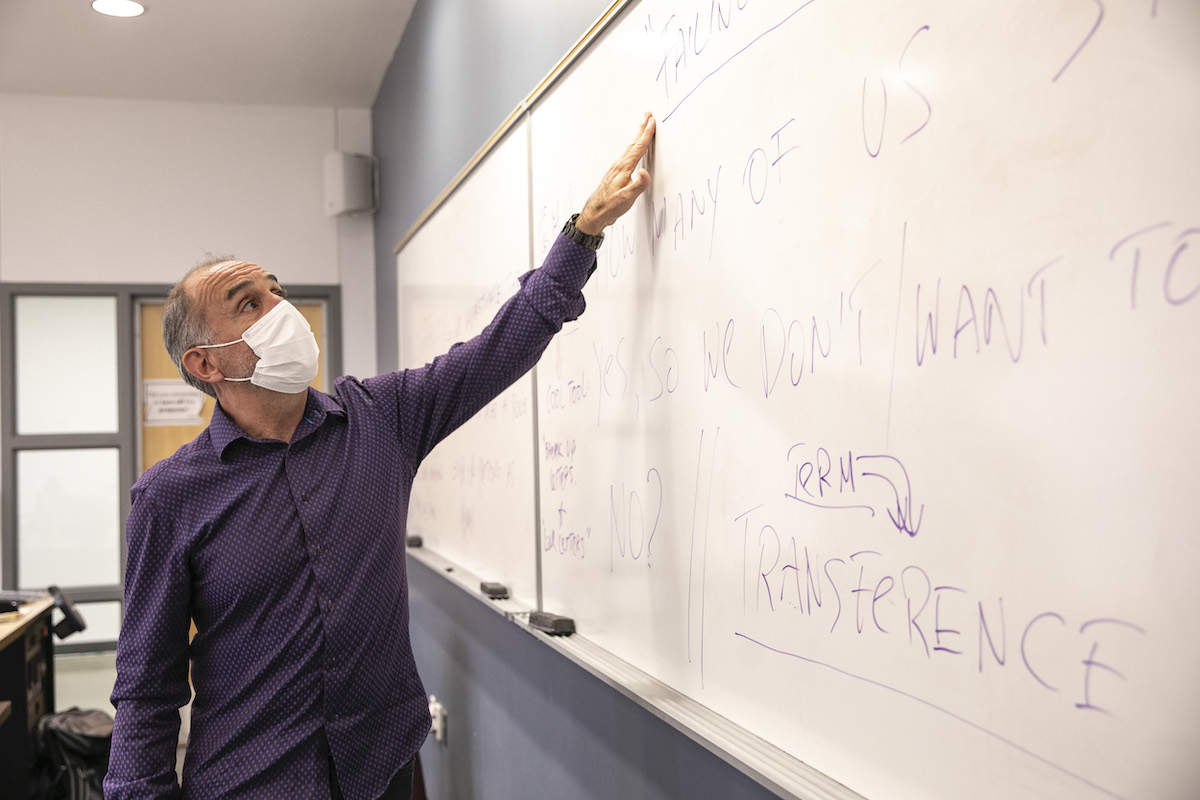
If you were going to design a new backpack, how would you start?
If you were in Andres Jordan’s class on Design Thinking for Innovative Operations, OSCM 430, you would have started by thinking about your customers and what they need, along with conducting market research before working on a prototype, versus designing the backpack and then seeing if your design would sell.
Iris Forson, a graduating senior who majored in operations and supply chain management, said the project got her to look at design from “multiple perspectives, including consumer needs.”
This fall was the first time George Mason University’s School of Business offered the class, which centers on an approach to problem-solving that allows for increased agility and responsiveness to fast-moving digital technologies. The class introduced students to techniques that help them focus on the end user experience when creating corporate strategies and products.
“I believe the students will find that design thinking and innovation tools they learned in my class will be useful for them in corporate environments,” said Jordan, a Mason adjunct professor who has worked in management, development and as a consultant during his 35 years in the corporate world. “I’ve been trying to teach the class in a dynamic way.”

Jordan said the class, which had 17 students, was a “down-to-earth” introduction to concepts that many of them had not have studied in depth. Jordan said he spent very little time lecturing and instead opted for experiential learning, such as group projects.
Forson said that she also learned “teamwork and the ability to communicate effectively.”
“I ran into a situation with my team where my ideas and opinions weren’t being heard, and I had to use an assertive communication method,” Forson said.
Rahel Namaga, a senior majoring in management information systems, said the class was useful and engaging.
“One thing I have learned from this class is that you don't have to be gifted to be a design thinker, you just have to be able to solve problems, such as how a product can better meet customer experience needs,” Namaga said.
Sidhartha R. Das, assistant area chair for the school’s Information Systems and Operations Management, said the class “exemplifies the hands-on and experiential nature of design thinking.”
“The course both instills in and allows students to practice a problem-solving mindset,” Das said.
Design thinking is a way to think about corporate strategy by really understanding what your customers want, according to Jordan.
“It involves a deep look into their emotions, using techniques like journey mapping,” Jordan said. “It’s about empathy, diversity, humanness, positivity, possibility, and humility, all important qualities for innovators and leaders in the corporate world and beyond.”
Kamaljeet Sanghera, executive director of the Institute for Digital InnovAtion, said she was excited to see design thinking skills offered to students pursuing business majors.
“This type of learning enables them to be disruptive innovators while being mindful of the implications of their impacts,” Sanghera said.
